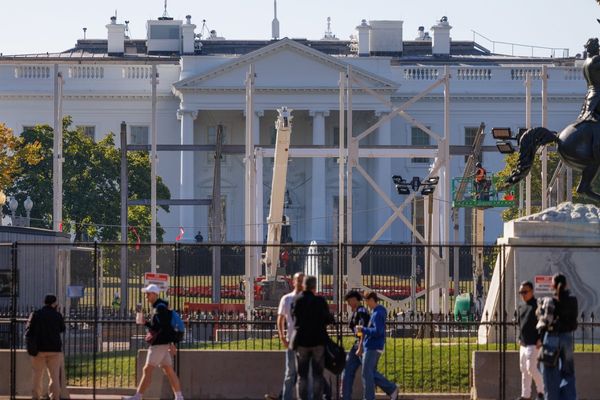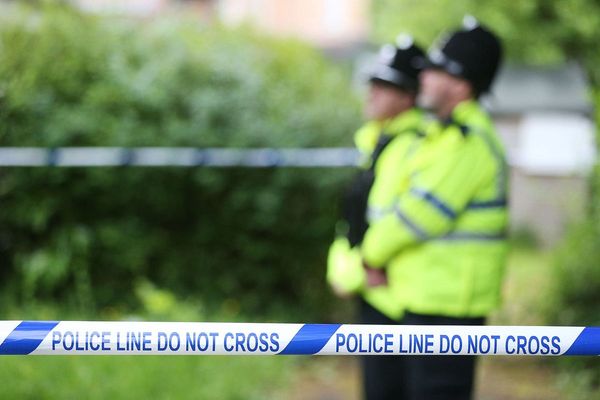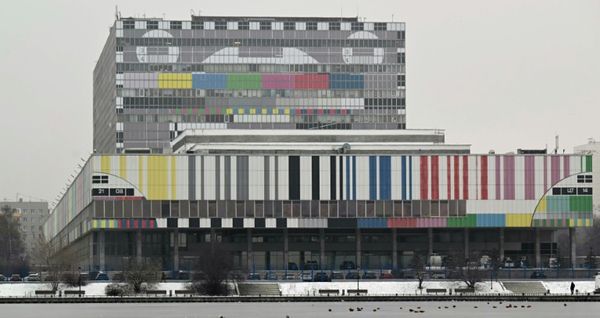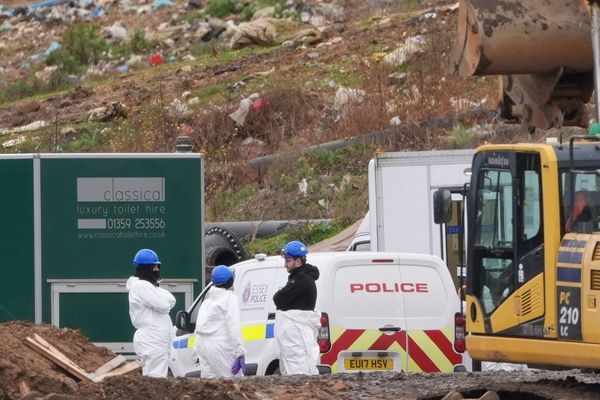
The International Court of Justice has ordered Russia to halt military operations in Ukraine as Moscow’s invasion enters its fourth week.
The top UN court said on Wednesday that it is “profoundly concerned” by Russia’s use of force in Ukraine and ordered it to “immediately suspend the military operations” that started on February 24.
The court’s rulings are binding but it lacks the means to enforce them. Russia did not attend the court hearings last week and later filed a written document in which it said the court should not impose any measures.
The third week of Russia’s invasion of Ukraine has seen Russian forces continue to bombard several cities including the capital, Kyiv, Mariupol and Kharkiv, as the United States and its allies imposed further sanctions on Moscow over the war.
According to UN figures, more than three million Ukrainians have fled the country and a further two million people have been internally displaced.
Here, Al Jazeera looks at the major events that marked the third week of the war in Ukraine:
March 9: Russian air raids hit a maternity hospital in the besieged city of Mariupol, breaking a ceasefire.
Ukrainian President Volodymyr Zelenskyy says three people were killed, including an infant. More than a dozen others were wounded. Russian foreign minister Sergey Lavrov says Russia believed the hospital to have stopped serving patients, and to be housing Ukrainian “radicals”.
The Kremlin says Russian forces do not fire on civilians. Mariupol city officials say at least 1,200 civilians have been killed since Russia launched its invasion.
In Zhytomyr, west of Kyiv, two hospitals, including a children’s hospital are bombed.
Streams of cars and pedestrians pour out of Kyiv’s northwestern suburbs Irpin and Vorzel, as civilians flee bloody battles around the capital.
The International Monetary Fund’s executive board approves $1.4bn in emergency financing for Ukraine. “Financing needs are large, urgent, and could rise significantly as the war continues,” executive director Kristalina Georgieva says.
The World Bank’s chief economist says Russia is in “default territory”.
March 10: Russian forces bomb a supposedly safe corridor, preventing humanitarian supplies from reaching Mariupol.
“This is outright terror … from experienced terrorists,” says Zelenskyy.
The UN says more than two million refugees have fled Ukraine.
Russian foreign minister Sergey Lavrov and his Ukrainian counterpart Dmytro Kuleba meet in Turkey, in the highest-level talks since the war began, but there is no breakthrough.
The US Congress approves $13.6bn in spending for Ukraine, divided equally between aid for refugees and military aid for the front. Lawmakers say this is the beginning of a much larger commitment.
The US House of Representatives approves a ban on Russian oil imports.
Zelenskyy’s top economic adviser says the Russian invasion has destroyed 100 billion euros worth ($110bn worth) of infrastructure.
March 11: Russia declares a ceasefire (“regime of silence”) as of 07:00 GMT for civilians to be able to leave the five cities of Kyiv, Kharkiv, Mariupol, Chernihiv and Sumy. The first three are the most hard-fought sieges of the war so far, and have seen the heaviest casualties of civilians trying to escape.
Satellite images appear to show Russian armoured units manoeuvring through towns on the northwestern outskirts of Kyiv, and units towing howitzers into firing positions in Lubyanka just north of the capital, in what appears to be a regrouping in advance of an assault.
“Russia is likely seeking to reset and re-posture its forces for renewed offensive activity in the coming days,” says an intelligence briefing from the British defence ministry. Satellite images appear to show muzzle flashes and smoke from Russian heavy artillery pounding Ukrainian positions in Moschun, north of Kyiv.

Zelenskyy says Russians have kidnapped the mayor of Melitopol, calling it “a new stage of terror”. Russian artillery targets the industrial city of Dnipro, in south-central Ukraine.
During a meeting of the Russian Security Council, Putin approves the deployment of up to 16,000 irregular fighters from Syria. Defence Minister Sergey Shoigu says they wish to volunteer.
The UN refugee agency says the number of Ukrainian refugees surpassed 2.5 million and almost another two million have been internally displaced.
The European Union issues the Versailles Declaration in response to the Ukraine war. Although it does not create a European defence capability, it moves in this direction, calling for member states to strengthen defence spending, investment, research and co-ordination, and asking the Commission to highlight defence gaps by mid-May.
The US leads a new round of sanctions against Russia, backed by the G7 group of rich nations.
March 12: In Mariupol, an Associated Press news agency crew films a Russian tank shelling an apartment building before being destroyed by Ukrainian troops, and an AP reporter is among a group of medical workers targeted by Russian sniper fire.
Ukrainian officials say Russian forces pillaged a humanitarian convoy that was attempting to relieve the more-than-400,000 residents trapped in the city.
A Russian air raid hits a westbound train evacuating civilians from eastern Ukraine, killing one. Russian overnight shelling in the Kyiv suburbs intensifies.
March 13: Russia broadens its targets westward, firing 30 cruise missiles at a military training base in Yavoriv, 25km (15.5 miles) from the Polish border. Ukrainian officials say 35 people were killed and 134 were wounded in the attack.
Russian troops also fire at the Ivano-Frankivsk Airport, 150km (93km) from the Romanian border, which includes a military airfield.
Zelenskyy calls it a “black day”, renewing his plea for a no-fly zone and for the US to allow Poland to transfer its Soviet-era MiG-29s to the Ukrainian air force. “If you do not close our sky, it is only a matter of time before Russian missiles fall on your territory. NATO territory,” he says.
March 14: Top Putin aide Viktor Zolotov, who heads the national guard, becomes the first high-ranking Russian to admit the war in Ukraine is not going as planned. “I would like to say that yes, not everything is going as fast as we would like, but we are going towards our goal and victory will be ours,” he says.
Chechen leader and Putin loyalist Ramzan Kadirov says Chechens have joined Moscow’s fight against Ukraine. He posts a video of himself addressing Chechen irregulars allegedly at Hostomel airport, seven kilometres (4.3 miles) from Kyiv.
The US warns China against providing alleviation from sanctions to Russia, as National Security Adviser Jake Sullivan meets Chinese foreign policy chief Yang Jiechi for talks.

An aide to Zelenskyy says Russian forces have again blocked a humanitarian convoy trying to reach Mariupol, but the city council says 160 private cars manage to leave, making it the first civilian evacuation in two weeks.
The UN says more than 2.8 million people have fled Ukraine, as Russian and Ukrainian delegations resume talks.
The French presidency of the EU says member states have agreed upon a fourth package of sanctions against Russia.
An anti-war protester disrupts a Russian state television news programme by holding up a placard behind the presenter reading, “Don’t believe the propaganda.”
March 15: The Czech, Polish and Slovenian prime ministers travel to Kyiv. “It is our duty to be where history is forged,” says Polish Prime Minister Mateusz Morawiecki.
Some 20,000 civilians manage to flee Mariupol via an evacuation corridor, as the number of refugees surpasses three million, according to the UN.
Zelenskyy tells European officials he does not believe NATO membership is a prospect for Ukraine, signalling possible grounds for agreement with Moscow in continuing negotiations.
“We have heard for many years about the open doors, but we also heard that we can’t enter those doors. This is the truth, and we simply have to accept it as it is,” he says.







